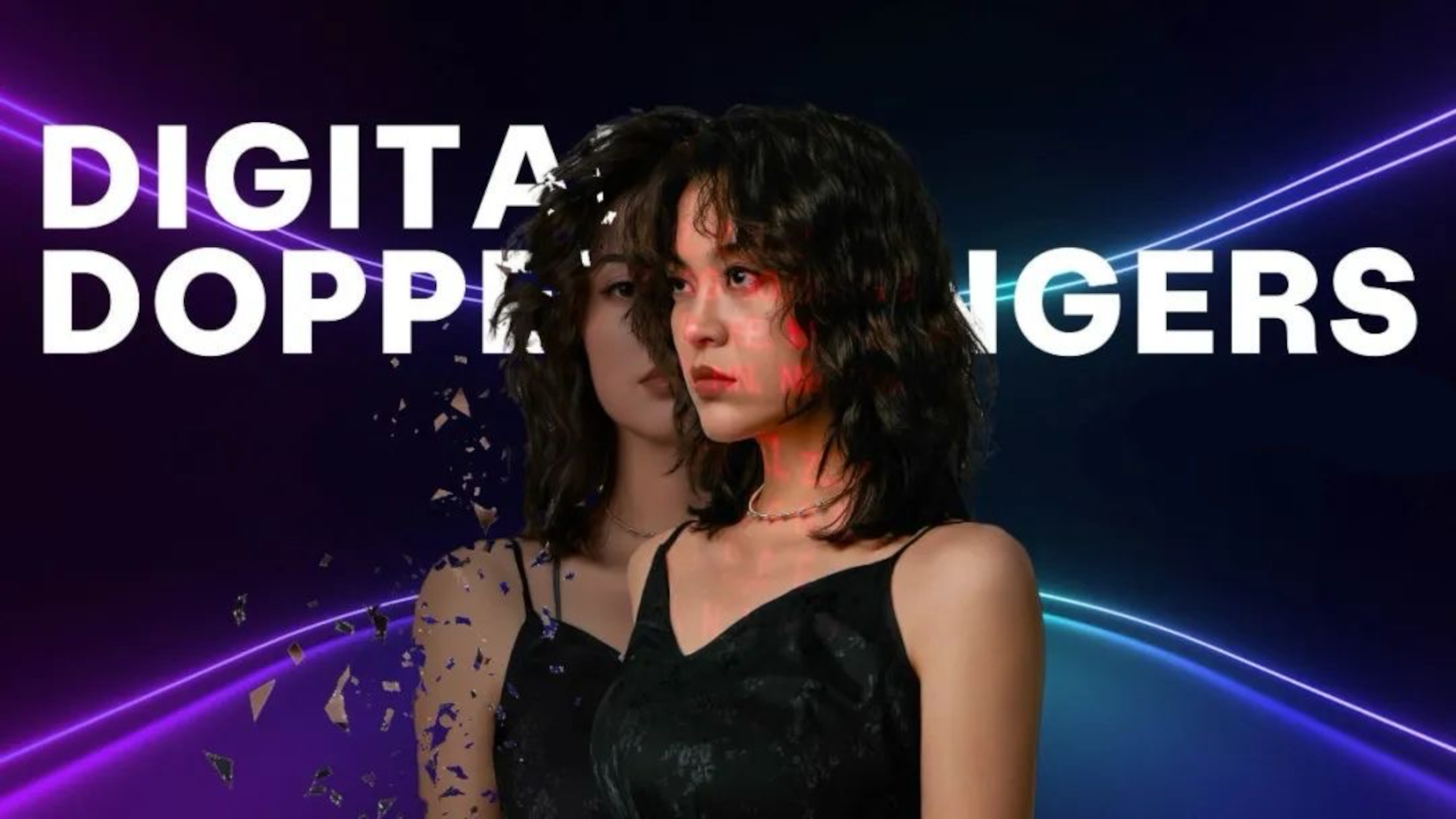
Hunting Down Zoomers’ Digital Doppelgangers?

dentsu Z team, as DENTSU CREATIVE’s pioneering force of gen z creatives, proactively make strategic plans and propose solutions for clients, explore innovative ideas by putting cutting-edge technology into practice and create profound cultural experiences. As both consumers of generation z and young creatives, dentsu Z deliver direct insights, create connections between the brand and the consumers of the next generation.
The digital natives, gen-zers, are sailing through all kinds of social platforms with different accounts to perform their multi-faceted personalities, looking for self-expression and social connections that are missing in a paralleled real world.
Despite always feeling overwhelmed by the hustle and bustle of life, gen z's have already evolved with their digital doppelgangers in the virtual world.
DIGITAL DOPPELGANGERS: BY THE NUMBERS
458
Gen z's value their digital assets like never before, while people born after 2000 have been seen writing their virtual property into wills and testaments. According to a whitepaper from the China Will Registration Centre, the organisation had received 458 wills involving digital assets by the end of 2022.
30B
Gen z's put their online privacy first, and that’s why privacy screen protectors have become an evergreen business. A report on China’s screen protector market from Qianzhan Research Institute manifested that this market is about to hit 31.7 billion yuan by 2026.
1/4
One out of every four ‘00s has a 'companion' on social media, according to Soul APP. Moreover, approximately 50% of young people had a long-term connection with their internet friends for as long as two years, and over 80% of them eventually turned the network into a real-life friendship.

DIGITAL DOPPELGANGERS: WHAT IT LOOKS LIKE
MULTIPLE PLATFORMS, MULTIPLE PERSONAE
Gen z'ers own a flurry of social media accounts to role-play different parts of themselves in the digital world. As the concept of 'platform swinging' in the polymedia context proposed by Tandoc et al. in 2019 stated, gen z's are more likely to navigate themselves across different social media platforms and leverage the platform differences for relationship management and self-expression instead of socializing solely on one account.
Gen z's are adept at swinging their public personas: appearing to be sentimental on NetEase Cloud Music, being funny and witty at QQ, paparazziing their idols while airing views freely on Weibo, and remaining polite, cute, and positive on WeChat, where their families and colleagues are.
BURNER ACCOUNTS
Then here comes the problem. What if gen z's are fatigued with their multi-faceted public persona but still need a private zone to vent out their negative energy?
A burner account will be the last resort to offload and accommodate all the secrets or deal with those unnecessary social relations, including with salespeople, house agents, community group buyers and more.
No wonder if someone owns multiple burner accounts; to gen z's, the more burner accounts, the richer in his/her spiritual wealth. It’s not simply about creating an account; it’s more about building a perfect harbour in the digital world with every facet of their personalities.

PRIVACY PROTECTION
From leveraging private browsing to setting WeChat moments visible just for three days, turning off app tracking permissions, or even using a privacy screen protector, gen z's leave no stone unturned to safeguard their online privacy.Recently, accounts under the same name 'Momo' and the identical profile photo of a cartoon dinosaur have been surging across various social media platforms to become a phenomenon. This is gen z’s new anonymous doppelganger to camouflage themselves in front of their acquaintances. Not only does the 'momo' identity help evade a possible cyber 'manhunt,' but the 'momo' identity also facilitates a more friendly online space with better privacy.
Gen z' s defend their privacy till the last minute. As hilarious as it may sound, in Chongqing, the first thing a man did after getting stabbed was to delete all his mobile message history, which immediately became a news headline and was mocked by netizens.
Our works
KFC RE:STORE
Brand: KFC
Creative Agency: DENTSU CREATIVE
Using Unreal Engine 4, DENTSU CREATIVE partnered with KFC China to create a metaverse store on Super QQ Show that breaks new ground in connecting the real world with the virtual. Unlocking new experiences at the intersection of craft, innovation, and commerce, KFC Re:Store was awarded a bronze Creative Commerce Lion at the Cannes Lions International Festival of Creativity 2023.
KFC had a rich understanding of their audience and their virtual world. One insight was key: for gen z, there is no disconnect between the real world and the virtual space. Virtual status, virtual friends, and virtual hangouts are as valuable as real ones. Lots of brands have a presence in the metaverse. But KFC needed not simply a presence but a commerce platform, connecting their audiences’ needs with the codes and culture of Web 3.0, to drive consumption.
By working with the young creative team, dentsu Z, we once again transformed the customer experience and established a new commercial model. At the KFC Re:Store, within five weeks, almost seven million pieces of virtual clothing, 11 million items of virtual furniture, and 180 million virtual KFC fries and cokes were sold. On the launch day of customised KFC clothing, total sales of virtual fashion items across the Super QQ Show escalated by 41% compared to the previous day.
OREO FAIRY TOWN
Brand: OREO
Creative Agency: DENTSU CREATIVE
Childhood memories never fade.
To awaken everyone’s childlike mini-self, Oreo built a Fairy Town with Oreo Minis on Super QQ Show, where players can ride in fairy carriages, explore a snack garden, chat with a virtual elf NPC, toss coins in a milk fountain, live in a snack castle, or DIY an afternoon tea.
Through the power of modern creativity and technology, Oreo created immersive experiences that marvellously connected the real and virtual spaces for young consumers. In just three days, Oreo Fairy Town welcomed over 107 million visitors, while the H5 garnered 114 million impressions. Over eight million chats took place online with Oreo’s virtual NPC.
WHAT IT MEANS FOR BRAND…
01: BRANDS AWAKENING FOR EVOLVING DIGITAL FUTURE
A myriad of AI tools have sprung up since the birth of ChatGPT. In an era of AI-Generated Content, everyone can craft their virtual identities based on whatever they want. As AI almost invents the possibilities for eternality through virtual presence, sooner or later, brands and businesses will welcome another evolution in the digital world.
02: SOCIALISING WITH STRANGERS IN BUSINESS
With digital doppelgangers, gen z's used to seek identity recognition on virtual social apps such as Tantan, SOUL, and Wanba, giving rise to social communities with shared interests, emotions, and values as the core. Now they are more practical or physical-oriented, looking for companions online who can together dine out, take a trip, play games, study for exams, exercise, and more. For Zoomers, companionship (Da Zi) is a new type of social relationship: less than friends, more than co-workers, decent and noble companions for a specific activity. Strangers’ social interactions can take place across different types of social APPs. For example, people chat with drivers or merchants on food delivery apps like Meituan and Ele.me, opening a window for interesting online conversations and interactions with strangers beyond just order enquiries. As brands pivot for digital transformation amid market iterations, catering to gen z’s fashion with digital doppelgangers can be a wise approach to stand themselves in good stead.















